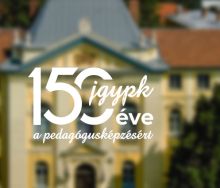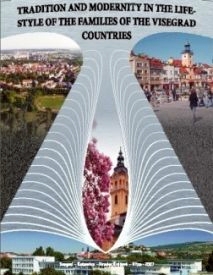
Aktualitások
Kutatócsoport
Intézeti oldalak
Faliújságok hallgatóinknak
- Mentálhigiénés közösség- és kapcsolatépítő mesterszak - MA nappali
- Mentálhigiénés közösség- és kapcsolatépítő mesterszak - MA levelező
- Egészségfejlesztő mentálhigiénikus szakirányú továbbképzési szak / szakvizsga
- Egészségfejlesztő kisebbségkoor-dinátor szakirányú továbbképzési szak / szakvizsga
- SZEGEKIF PROJEKT
Konferenciák
Intézeti pályázatok
Kiadványaink
Benkő, Zs. (2007, Ed.): Tradition and Modernity in the life-style of the families of the Visegrád countries. JGYF Kiadó, Szeged. 429 p.
CONTENTS
Péter Makara: Preface
Zsuzsanna Benkő: Conceptual umbrella
I. a. Zsuzsanna Benkő: An overview of international theories
I. b. Lajos Olasz: Central Europe: A comparative socio-historical overview (Czech, Slovakian, Polish and Hungarian Society in the 20`~ Century)
II. Research reports by the `Visegrád Four' countries
II. 1. Zsuzsanna Benkő and Klára Tarkó: International research concept
II. 2. National reports
IL2.1. National research report from Hungary, University of Szeged, Juhász Gyula Faculty of Education, Department of Applied Health Sciences, Szeged
II. 2.1.1. Klára Tarkó: An overview of Hungarian national theories
II. 2.1.2. Klára Tarkó, Zsuzsanna Benkő, László Lippai and Katalin Erdei: Hungarian sample, sampling, and research procedure
II. 2.1.3. Klára Tarkó: Demographic and Social characteristics
II. 2.1.4. Zsuzsanna Benkő: Nutrition
II. 2.1.5. László Lippai: Free time
II. 2.1.6. László Lippai: Family habits
II. 2.1.7. Klára Tarkó: Cuttural factors
II. 2.1.8. Katalin Erdei: Values
II. 2.1.9. Zsuzsanna Benkő, László Lippai, Klára Tarkó and Katalin Erdei: Tradition and Modernity: Summary Description of Relevant Indicators in the Hungarian Sample
II. 2.2. National research report from Poland, University of Silesia, Institute of Sociology, Faculty of Social Sciences, Katowice
I. Andrzej Górny and Katarzyna Wegrzyn: Structure
II. Katarzyna Wegrzyn: Function
III. Andrzej Górny: Consumption
IV. Maria Swiatkiewicz-Mosny: Education
V. Maria Swiatkiewicz - Mosny: Free time and participation in culture
VI. Wojciech Swiatkiewicz: Values and religion
VII. Andrzej Górny: Social and demographic situation VIII. Andrzej Górny - Wojciech Swiatkiewicz - Maria Swi4tkiewiczMosny and Katarzyna Wegrzyn: Summary - Conclusions
References
II. 2.3. Blahoslav Kraus - Iva Jedlicková: National report from the Czech Republic, University of Hradec Králové
Introduction
I.Structure
II. Function
III. Consumption
IV. Education
V. Free time
VI. Values and religion
VII. Socio-demographic situation
II. 2.4. National research report from Slovakia, Constantine the Philosopher University in Nitra, Faculty of Social Sciences and Healthcare, Nitra
I. Peter Ondrejkovic: Introduction
1. Family as Subject-Matter of (Our) Research
2. Characteristics of preparabon and implementation of research
3. Presentation activities
II. Peter Bican and Richard Slávik: Methodology of the research
III. Results of Research in the Nitra Region
1-2. Peter Ondrejkovic: Basic characteristics, forms of cohabitation and Socio-professional status of families
3. Jana Majercíková, Rastislav Bednárik and Monika Strbová: Family functions by holding contacts, mutual assistance and customs observation
4. Alena Kolesárová and Darina Marcinková: Family comsumption
5. Dagmar Marková, Martina Hrozenská, Milan Tomka, and Miroslav Tvrdon: Free time and cultural participation
6. Anna Krizanová and Mária Peseková: Tradition and modernity in the lifestyle of families
7. Rastislav Bednárik: Socio-economic situation of families
IV. Peter Ondrejkovic: Theoretical Conclusion - Analysis and characteristics of the process of changes in contemporary family
III. Klára Tarkó, Zsuzsanna Benkő, László Lippai and Katalin Erdei: Tradition and modernity: a comparative trans-national analysis
1. Nutrition habits
2. Free time habits
3. Family habits
4. Cultural habits
5. Value system
Authors of the Volume
